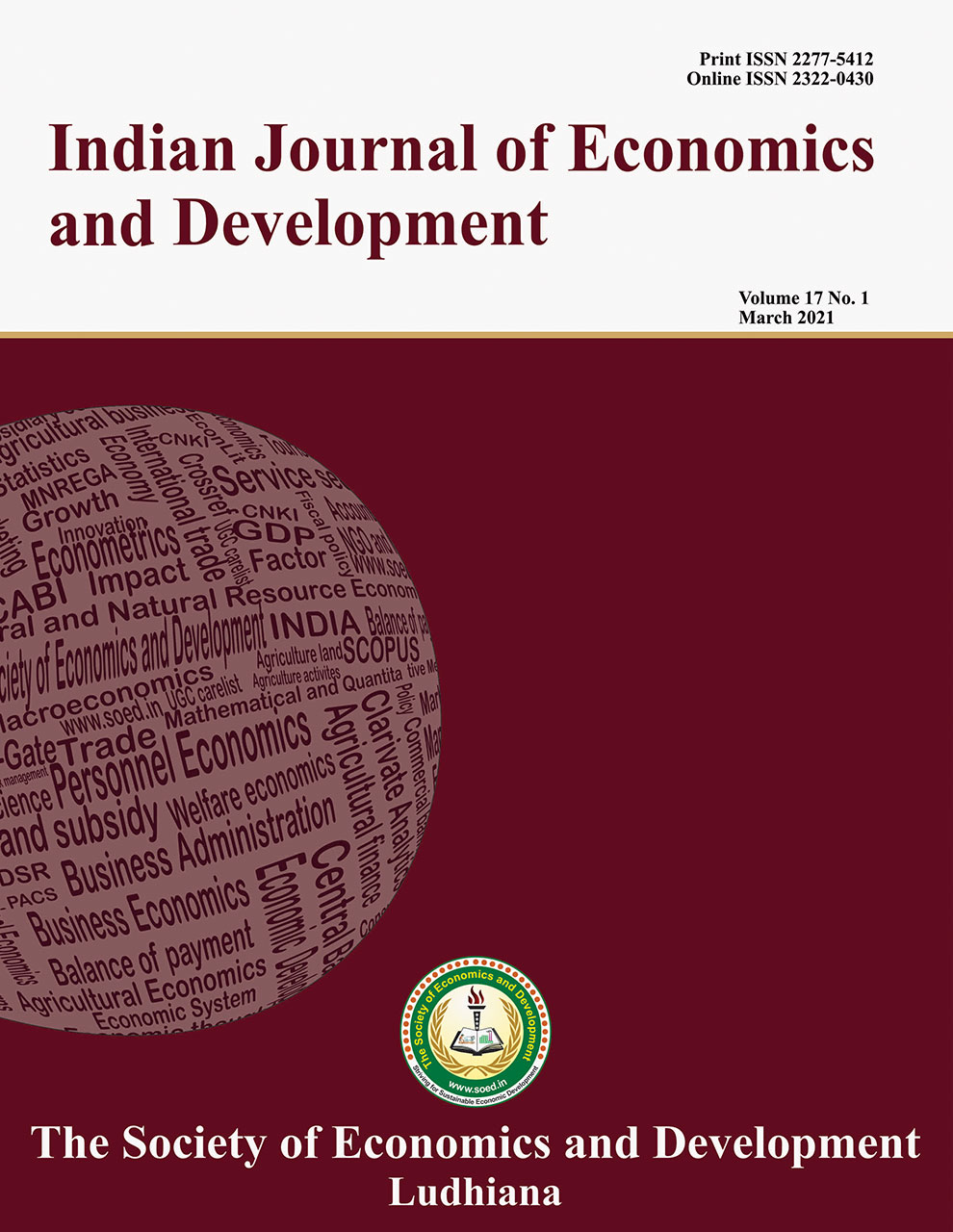External Debt and Economic Growth: Case of A Small Island Nation based on Solow Growth Model

Price: ₹ 500
Author: Enitilina Fetuu, and Imran Ur Rahman
Author Address: Research Assistant, School of Economics and Management, Capital University of Economics and Business, Beijing (China), Tonga Statistics Department, Nukualofa (Tonga) and Associate Professor, Center for Trans-Himalaya Studies, Leshan Normal University, Sic
Keywords: Crowding-out effect, debt overhang theory, economic growth, external debt, Solow Growth Model.
JEL Codes: F34, F43.
Abstract
This paper formulates an augmented Solow Growth Model using standardized indicators most applicable to the Pacific Island nation of Tonga. The article explored how external debt can affect Tonga's economic growth, centred on the crowding-out effect and debt overhang theory. A time series data based on 32 years ranging from 1985 to 2016 was used for the analysis. The results showed that Tonga's external debt significantly and positively impacted economic growth. Official development assistance harmed the economic growth of Tonga, which may be due to the mismanagement of external debt. The crowding effect in the form of debt servicing negatively affects Tonga's economy. However, loan repayments under the theory of a debt overhang had a positive relationship with economic development. Additional findings suggested that the distribution of technology grants to the island nation appeared to improve economic growth.
Description
Indian Journal of Economics and Development
Volume 18 No. 4, 2022, 884-891
DOI: https://doi.org/10.35716/IJED/22180
NAAS Score: 5.15 (2022)
Indexed in Clarivate Analytics (ESCI) of WoS
Indexed in Scopus (SJR: 0.18)
UGC Approved (UGC-Care List Group II)



